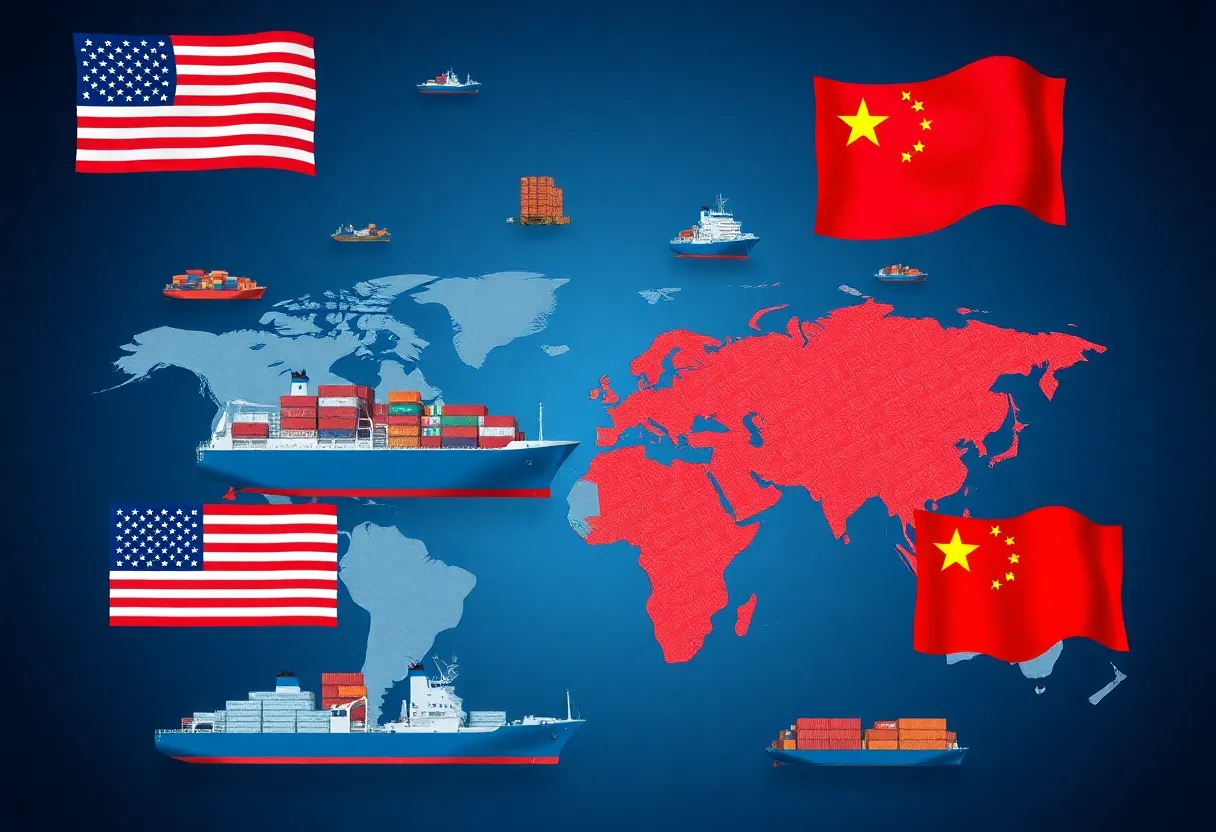News Summary
President Trump’s recent announcement of a 145% tariff on Chinese goods has sparked concerns among corporate giants and economists. Retailers such as Target and Walmart warn of potential price surges and product shortages that could impact consumers. Furthermore, China’s retaliation, including halting aircraft deliveries from Boeing, raises the stakes in the ongoing trade tensions. With increasing calls for de-escalation and legal challenges to the tariffs, the future of trade relations hangs in the balance as both sides consider the broader implications for the global economy.
President Trump’s Tariff Policy Faces Growing Headwinds
As the dust settles on President Trump’s latest tariff maneuvers, there’s a noticeable buzz of concern among companies and economists alike. The recently announced 145% tariffs on Chinese goods have posed significant challenges that might force a change in direction.
Pressure from Corporate Giants
Senior executives from major retailers, like Target and Walmart, have raised alarms about the potential fallout from these tariffs. They warn of looming price surges and the threat of product shortages, which could easily ripple across the economy. These executives have been vocal about the risks the tariffs pose not just to their profit margins but to everyday consumers who could bear the brunt of increased prices.
Shifting Trade War Strategy
Trump’s initial trade war strategy aimed to compel foreign companies to set up shop in the U.S. It appears, however, that this ambition is now being re-evaluated. Trump has recently backed away from his previous threats to dismiss the Federal Reserve chairman, suggesting a more tempered approach in hopes of avoiding an all-out trade war with China.
Chinese Retaliation Hits Hard
The Chinese government’s response to the tariffs hasn’t been subtle either. They’ve recently halted aircraft deliveries from Boeing and even sent back previously ordered planes. This places Boeing in a precarious position as they are now scrambling to re-market aircraft that were built but not accepted by Chinese buyers.
A Call for De-Escalation
Both sides seem to recognize that the status quo is unsustainable. Treasury Secretary Scott Bessent highlighted this point, expressing the necessity for de-escalation of the ongoing trade tensions. Peace talks appear to be increasingly on the table, especially as Trump hinted at the possibility of imposing reciprocal tariffs within just weeks if no agreements are reached.
The Bigger Picture
Currently, the U.S. maintains a 10% universal tariff on most foreign goods, although specific items face higher rates. The uncertainty stirred by Trump’s inconsistent tariff policies has sent shockwaves through the markets, leading to significant stock losses that have investors wary about the future.
Warnings of Economic Downturn
Major banks and economic organizations have raised red flags, warning that the ongoing trade war could set the stage for a potential global economic downturn. The complexities of international trade dynamics are not lost on experts, specifically noting how Trump’s tariffs are viewed as part of a wider populist protectionism agenda that destabilizes global trade.
Legal Challenges and Consumer Impact
Seeking Dialogue with China
Conclusion: A Turbulent Future Ahead
Deeper Dive: News & Info About This Topic
- BBC News
- Wikipedia: Trade War
- New York Times
- Google Search: Trump tariff policy
- CNN
- Google Scholar: tariffs impact on economy
- The Guardian
- Encyclopedia Britannica: Tariff
- NBC News
- Google News: Trump tariffs 2025
- CNBC
- Axios

Author: STAFF HERE FLORENCE WRITER
The FLORENCE STAFF WRITER represents the experienced team at HEREFlorence.com, your go-to source for actionable local news and information in Florence, Florence County, and beyond. Specializing in "news you can use," we cover essential topics like product reviews for personal and business needs, local business directories, politics, real estate trends, neighborhood insights, and state news affecting the area—with deep expertise drawn from years of dedicated reporting and strong community input, including local press releases and business updates. We deliver top reporting on high-value events such as the Florence Festival of Lights, Pee Dee Pride, and agricultural expos at the Florence Center. Our coverage extends to key organizations like the Florence Regional Chamber of Commerce and the Pee Dee Area Council of Governments, plus leading businesses in healthcare and retail that power the local economy such as McLeod Health and Pee Dee Electric Cooperative. As part of the broader HERE network, including HERECharleston.com, HEREColumbia.com, HEREGreenville.com, and HEREHiltonHead.com, we provide comprehensive, credible insights into South Carolina's dynamic landscape.





